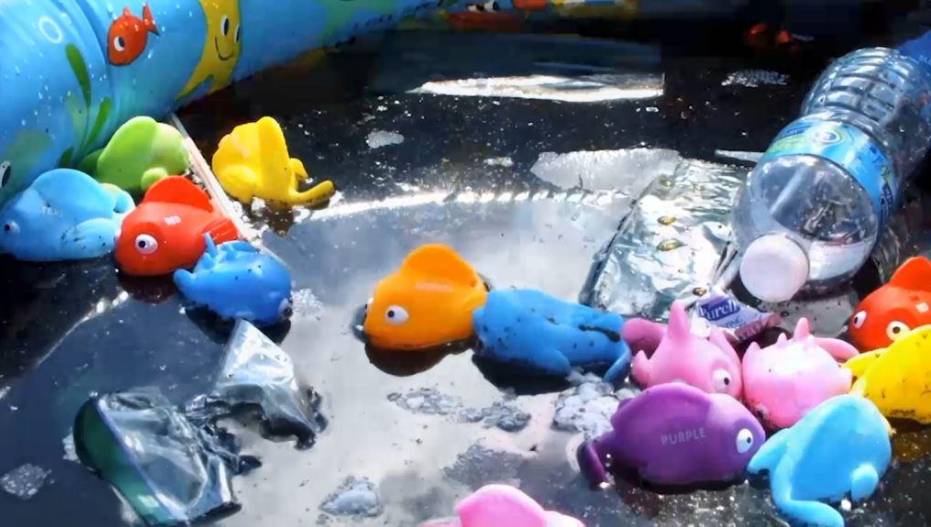Environmental Health and Safety assists the campus community in following all applicable laws, regulations, and standards. EH&S works to build positive relationships with regulators and ensure that reasonable actions are taken to prevent incidents.
Hazardous Materials Management
Environmental Health and Safety manages and advises others regarding hazardous materials at any point in their life-cycle, from planning and use to disposal and cleanup.
-
What are Hazardous Materials?
Toggle More Info -
Biological Safety and Wastes
Toggle More Info -
Chemical Safety
Toggle More Info -
Hazardous and Chemical Wastes
Toggle More Info -
Radioactive Materials
Toggle More Info -
Shipping Hazardous Materials
Toggle More Info -
Spills
Toggle More Info

Stormwater Management and Pollution Prevention
Located in the headwaters of the Estero Bay estuary, our campus is situated in an environmentally sensitive location. Florida Gulf Coast University is part of an interconnected regional watershed system that eventually spills into the Estero Bay Aquatic Preserve and ultimately the Gulf of Mexico. Important ecosystem services and economic activities depend on the health of our watershed.
What is an illicit discharge?
An illicit discharge is any type of liquid or solid waste (chemicals, oils, gas, trash, or other debris) that could enter or obstruct FGCU stormwater systems such as, catch basins, ponds, gutters, ditches, constructed channels, or storm drains.
If you see an illicit discharge, attempt to block it and contact EH&S immediately either by phone or via the email button below.
Contact us immediately to prevent any discharge that is not entirely composed of stormwater from entering the storm drains.
Illicit discharge policy 3.038 STORMWATER Management procedures STORMWATER TRAINING
Please Follow These Procedures to Keep Stormwater Healthy
- Keep campus free of litter and debris.
- Recycle responsibly.
- Properly dispose of chemicals and hazardous materials such as paint and cleaning solutions. Take hazardous materials to Lee County's Household Hazardous Waste Collection Facility.
- Take motor vehicles, golf carts, tractors, and boats to off-campus washing stations.
- Get involved with service-learning and volunteer opportunities.
- Complete the Environmental Health & Safety Training Course in Canvas.
- Change motor oil and fluids off-campus. Used motor oil is accepted for recycling at any auto parts store free of charge.
- Call us to report accidents such as oil spills or if you see people improperly disposing of wastes.
- Contact us at 239-590-1414 or ehs@fgcu.edu with any questions or concerns.
- Florida Department of Environmental Protection (DEP) for state specific information and regulations about protecting Florida's air, water, and land
- Florida Department of Financial Services (DFS) for trainings online and state specific fire marshal, insurance, risk management, and workers' compensation information
- Florida Department of Health (DOH) for all matters of Florida public health, including the regulation of Dining Services, resort, and recreational facilities, radioactive sources, and the control of bloodborne pathogens
- Occupational Safety and Health Administration (OSHA) of the U.S. Department of Labor (DOL) for requirements of safe and healthful working conditions standards
- Pipeline and Hazardous Materials Safety Administration (PHMSA) of the U.S. Department of Transportation (DOT) for online training and information regarding the transportation of goods, especially hazardous materials
- U.S. Department of Homeland Security (DHS) for trainings online, cybersecurity, and Chemical Facility Anti-Terrorism Standards (CFATS) Chemicals of Interest
- U.S. Environmental Protection Agency (EPA) for information regarding national development and enforcement of regulations that protect human health and the environment
- American National Standards Institute (ANSI) for information regarding national norms and guidelines for equipment such as acoustical devices to construction equipment, and many more
- International Organization for Standardization (ISO) for international standards and related documents regarding specifications for products, services and systems, and to ensure quality, safety and efficiency.
- National Fire Protection Association (NFPA) for trainings online, fire safety, fire and life safety codes
- National Safety Council (NSC) is a trusted source of occupational safety information and resources


